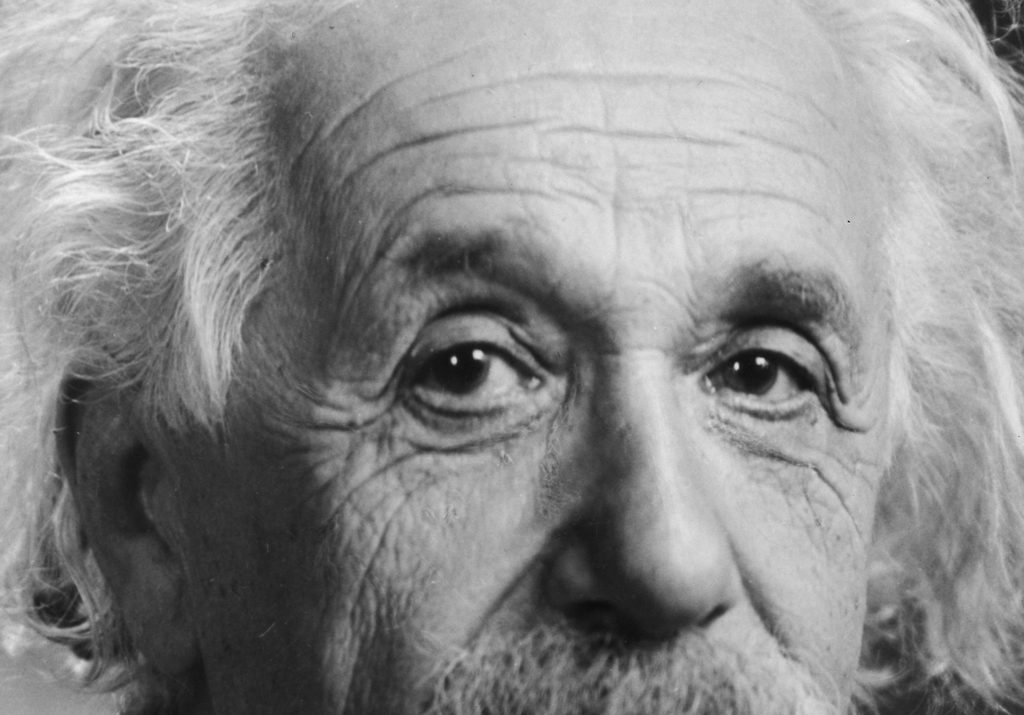
Like winds and sunsets, scientific geniuses were taken for granted until the military-industrial-scientific complex did away with them. One need look no further than those who study genius for a living to know that they are all but gone (Simonton 2013).

Of course, it is possible that some last genius, a sort of Luke Skywalker of science, has a hold out on some exile planet, or that geniuses live among us but remain unnoticed.
A pressing question today, other than the ultimate causes for the disappearance of genius, is what proximate mechanisms have led to its disappearance.
One proximate mechanism is a sort of bargain students make with their professors at universities across our planet. In this partnership, an undercover Sith-overlord professor named Professor Squandermind forms an unspoken agreement with his bright-eyed and cheerful, but already rushed students. The deal is this:
“I will tell you just what you need to know, and in turn, you will give me good teaching reviews.”
Students, pressed for time, are much too eager to take the professor’s deal. They do not read the fine print:
I will bring you up to speed as quickly as possible, and allow your to appear to be an expert, but I will not give you an in-depth understanding of the history and philosophy of your subject, necessary to avoid repeating mistakes of the past and become a theoretical innovator. In turn, you will give me good reviews and not mention to anyone that I know nothing about history and philosophy. After all, I made the same deal with my professors 30 years ago, and it worked for me!
If you pursue academics, your career will advance much more quickly, as mine did. Perhaps one day your world will be revolutionized by someone, like Einstein, who learned about history and philosophy. However, the deck is so stacked against such people, that it seems unlikely this will happen before you die. Therefore, our little agreement will always remain a secret and we can both be happy.
Yours truly,
Professor Squandermind

After taking the deal, students receive a highly condensed review of the history of their field. The history is taught like this:
1) There are intellectual heroes of the field, people like Darwin or Hamilton, who told us how the world works.
2) Geniuses did not stand on the shoulders of giants. They just replaced idiots (e.g., Darwin replaced Paley, and Hamilton replaced Wynne-Edwards).
3) Believe blindly in the second-hand interpretation of the works of geniuses. There is no need to read those authors for yourself.
4) If you do read primary works of geniuses, do not mind the inconsistency with second-hand interpretations (geniuses used antiquated prose [e.g., Darwin] or outdated models [e.g., Hamilton] that obscured what they were trying to say).
The students who learn from Professor Squandermind then tend to:
1) Learn everything quickly and superficially.
2) Be totally intolerant of new and different ideas (e.g. dismiss them on grounds that they do not conform to the standards of specialized research, or simply dismiss people with different views as idiots).
3) Repeat the same mistakes of the past.
Galileo (1632), in his heretical Dialogue, had several characters. One of them, named Simplicio, could have equally been named Professor Squandermind’s student. He was a dogmatic follower of Aristotle who believed the earth is the center of the solar system. The other, named Salviati, was somebody who endorsed a new heliocentric theory of Copernicus. What Salviati says to Simplicio on p. 24 allows us to understand perfectly the attitude of the disciples of Professor Squandermind:

Is it possible for you to doubt that if Aristotle should see the new discoveries in the sky he would change his opinions and correct his books and embrace the most sensible doctrines, casting away from himself those people so weak-minded as to be induced to go on abjectly maintaining everything he had ever said? Why, if Aristotle had been such a man as they imagine, he would have been a man of intractable mind, of obstinate spirit, and barbarous soul; a man of tyrannical will who, regarding all others as silly sheep, wished to have his decrees preferred over the senses, experience, and nature itself. It is the followers of Aristotle who have crowned him with authority, not he who has usurped or appropriated it to himself. And since it is handier to conceal oneself under the cloak of another than to show one’s face in open court, they dare not in their timidity get a single step away from him, and rather than put any alterations into the heavens of Aristotle, they want to deny out of hand those that they see in nature’s heaven.
Substitute Darwin or Hamilton for Aristotle and you will understand the attitude of the current generation of Simplicios. Indeed, it was Professor Squandermind’s students who crowned geniuses like Darwin and Hamilton with undue authority, for example by making microevolution an explanation for macroevolution, or making Hamilton’s rule into a general theorem of adaptation.
What I have just said here, thanks to the legacy of Professor Squandermind, is completely heretical in the field of evolutionary biology. Most evolutionary biologists have accepted a worldview in which natural selection is the only deterministic (non-random non-teleological) evolutionary force, which necessarily implies that macroevolution is microevolution writ large. In accepting this worldview, they often have also accepted many other correlated concepts like Hamilton’s rule as a general theorem of adaptation.
Some of these modern-day Simplicios are not, of course, totally ignorant about history and philosophy. They must know enough history and philosophy to make their arguments, as Simplicio did, in service of the dark side of science—ignorance, dogmatism, and reverence to authority.
Some might argue that Professor Squandermind is doing exactly what is best for science. Not all scientists, after all, should be revolutionaries. Moreover, there is not enough time to teach history and philosophy in a course on biology. But perhaps it is not as difficult as it sounds.
To give an example of how easy it could be to encourage innovative approaches, I take an excerpt of a human behavioral evolution class on YouTube. The passage focuses on the treatment of Wynne-Edwards as the intellectual forbearer to Hamilton and modern social theory. Robert Sapolsky is the instructor at Stanford giving the lecture. He is a neuroendrocinologist who studied social behavior in wild baboons and seems to know a lot about social evolutionary theory. However, Sapolsky teaches the subject in exactly the same way I have seen it taught nearly everywhere (by other experts and textbooks). At 16:45, Professor Sapolsky says,
“Animals behaving for the good of the species really came to the forefront when a guy in the early 60s named Wynne-Edwards, some hyphenated Brit zoologist (a few hoots from the audience) who pushed most strongly this notion of that animals behave for the good of the species…I’m sure the guy did all sorts of other useful things as anyone who has any depth to them would find out… but all I know is the guy is the one who came up with group selection. Animals behave for the good of the species. This isn’t the case at all. Animals behave for passing on as many copies of their genes as possible.”
The problem with this way of teaching is that it shows a lack of respect for intellectual forbearers of modern thought (Dr. Sapolsky is showing disrespect for Wynne-Edwards by calling him, “some hyphenated Brit zoologist,” and being a bit sarcastic about Wynne-Edwards’s career, “I’m sure the guy did all sorts of other useful things…” Undoubtedly some of Sapolsky’s ignorance about Wynne-Edwards career is not his own but results from the general way this subject is taught by nearly everyone). The problem with this sort of disrespect is that it breeds arrogance in students, and arrogance is more likely to lead to the same mistakes (disclaimer: I think Sapolsky is a wonderful lecturer, especially in how rapidly he communicates a vast amount of information on all sorts of topics, also with wit and humor…this is not a criticism of him but a criticism of how the whole field teaches this particular topic).
A far more effective teaching style is to encourage students to be thoughtful and humble. Instead of ridicule Wynne-Edwards, point out that Wynne-Edwards assembled evidence that many animal species have ritualized fighting and territoriality, and raised the evolutionary question of why these traits exist. Then point out that the solution Wynne-Edwards advocated is a common pitfall of evolutionary theory, which is not only associated with the notion of group selection but also the gene-selection perspective advocated by modern theory (e.g., gene selection can easily lead to the same trap of assuming natural selection works for the ultimate benefit of long-preserved units. It does not matter really if the unit is a population or a gene, you can fall victim to the fallacy either way).
Similar arguments could be made about how to teach natural selection. Instead of being dismissive toward the previous theory of Independent Creation and its advocates, it may be useful to explain how alluring it is to take complex design as evidence of the cause for origin. Evolutionists still commonly fall victim to this pitfall of teleological thinking, even though they do not realize they are making the same argument as former Creationists.
Therefore, it might not be that difficult, in principle, to teach students some history and philosophy along the way. Some of this involves just not teaching the subject material like it is cut and dried. Some of it is showing a bit of humility and respect for people who raised the right questions. Some of it is showing that perfectly intelligent people make mistakes.
With all that said, I recognize that biology is large and intricate. Not everyone can or should teach history and philosophy. But then again, not everybody in Star Wars is a Jedi and there is only one Yoda.

So, one way to deal with the extinction of genius is to try to be more like Yoda. Encourage students to avoid the dark side of science represented by dogmatism, arrogance and bigotry; and embrace the light side represented by careful thought, respect for other’s opinions, and openness to new ideas. Instead of making Professor Squandermind’s bargain with your students, perhaps make the following deal:
Understanding of the history and philosophy of your subject, I will give you. Not repeat mistakes of the past, and advance the science, you will give me in return. Proud teacher, I will be.
Simonton (2013). Scientific genius is extinct. Nature 493: 602.;
Dean Keith Simonton of the University of California, Davis, says that just like the ill-fated dodo, scientific geniuses like these men have gone extinct .